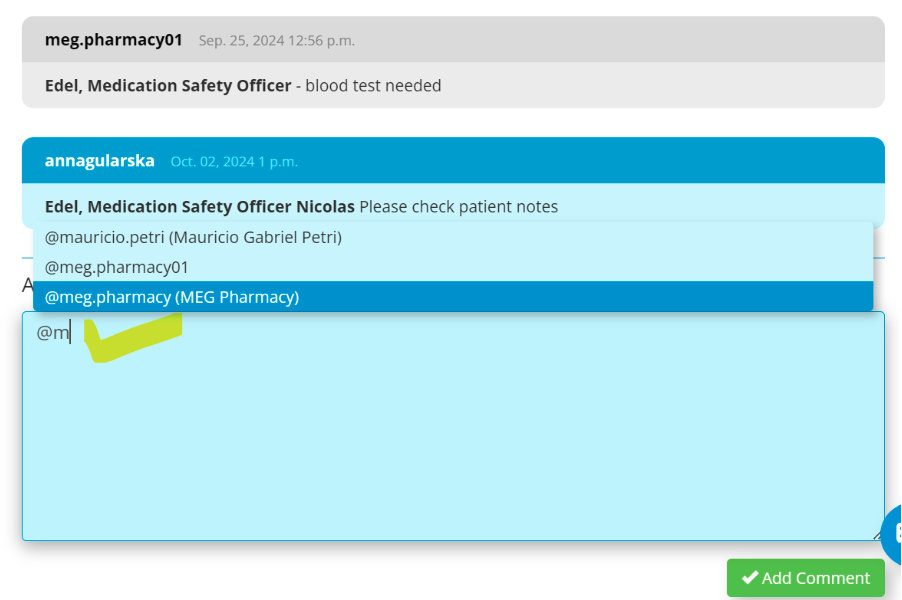Timely access to accurate patient information is essential for effective care. To support this, we’re preparing to launch a powerful new integration between MEG’s Quality, Risk & Compliance Management Software and the Integrated Patient Management System (IPMS). This upcoming development aims to streamline how patient data will be managed across hospitals and clinics in Ireland.
In this post, we’ll break down how the integration will work, why it matters, and the impact it’s expected to make in healthcare facilities across the country once fully rolled out.
Final testing is currently underway, with full deployment expected soon. Stay tuned for launch updates!
Why This Integration Matters for Ireland’s Healthcare
The Irish Health Service Executive (HSE) is on a mission to modernise healthcare through its eHealth strategy. The MEG-IPMS integration aligns perfectly with this initiative, offering a unified approach to patient management that addresses three major pain points:
Inconsistent Patient Data: Manually updating records can lead to errors and outdated information.
Administrative Overload: Healthcare staff spend too much time on paperwork, reducing their ability to focus on patient care.
Delayed Decision-Making: Lack of real-time data can slow down critical treatment decisions, impacting patient outcomes.
The Solution
By combining the strengths of MEG’s Quality, Risk & Compliance Management System and IPMS, this integration will enable seamless data exchange, automated updates, and real-time access to patient information—ensuring that healthcare providers have the tools they need to deliver the best possible care.
How It Will Work: Seamless, Secure Integration
The MEG-IPMS integration is being designed to be simple, secure, and efficient. Here’s a look at how the process will function once fully implemented:
1. Secure Data Connection
A secure site-to-site VPN will be set up between IPMS’s on-premise servers and MEG’s cloud environment. This ensures that all patient data is transmitted safely, in line with the highest standards of data protection.
2. Real-Time Data Syncing
Using HL7 standards (a set of guidelines for healthcare data exchange), patient admissions, transfers, and discharges will be automatically updated across both systems—eliminating manual data entry and reducing the risk of errors.
3. User-Friendly Interface
Healthcare staff will be able to view synchronised patient data through MEG’s intuitive dashboard, simplifying clinical documentation and reporting.
Benefits for Every Role in Healthcare
This integration will deliver tailored benefits across different roles in your facility:
✅ For Nurses and Physicians:
Faster Access to Patient Data: Make timely treatment decisions with up-to-date, accurate information.
Less Paperwork: Automated updates will free up more time for direct patient interaction.
✅ For Pharmacists:
Real-Time Medication Updates: Live access to admission and discharge info helps reduce medication errors.
Efficient Medication Management: Spend less time on manual entry, more on patient safety.
✅ For IT Teams:
Simple Integration and Maintenance: HL7 compatibility ensures smooth data exchange with existing systems.
Enhanced Security: VPN-secured and GDPR-compliant, guaranteeing the safety of patient data.
Addressing Common Questions
We understand that adopting new technology can raise concerns. Here's what to expect:
Is patient data secure?
Yes. The integration uses a secure VPN, adheres to HL7 standards, and ensures full GDPR compliance. All data is encrypted and protected.Will this disrupt our current workflows?
No. The integration rollout is designed to be smooth and minimally disruptive, following a phased approach that typically takes less than 4 weeks. Full training and support will be provided.What support will be available after implementation?
24/7 support will be available, including dedicated account managers and technical teams to resolve issues quickly.
The Future of Patient Care in Ireland
The MEG-IPMS integration is a key step toward a fully digitised healthcare system in Ireland. By reducing administrative burdens, improving data accuracy, and enhancing patient safety, this solution will empower healthcare providers to deliver higher-quality care with greater efficiency.
Take the Next Step: Be Among the First to Experience the Integration
Want to be among the first to see how the MEG-IPMS integration can transform your workflows? Contact us today to register your interest, ask questions, or join our waitlist for a personalised demo once the rollout is live.
👉 Book a call with the team to learn more…


























